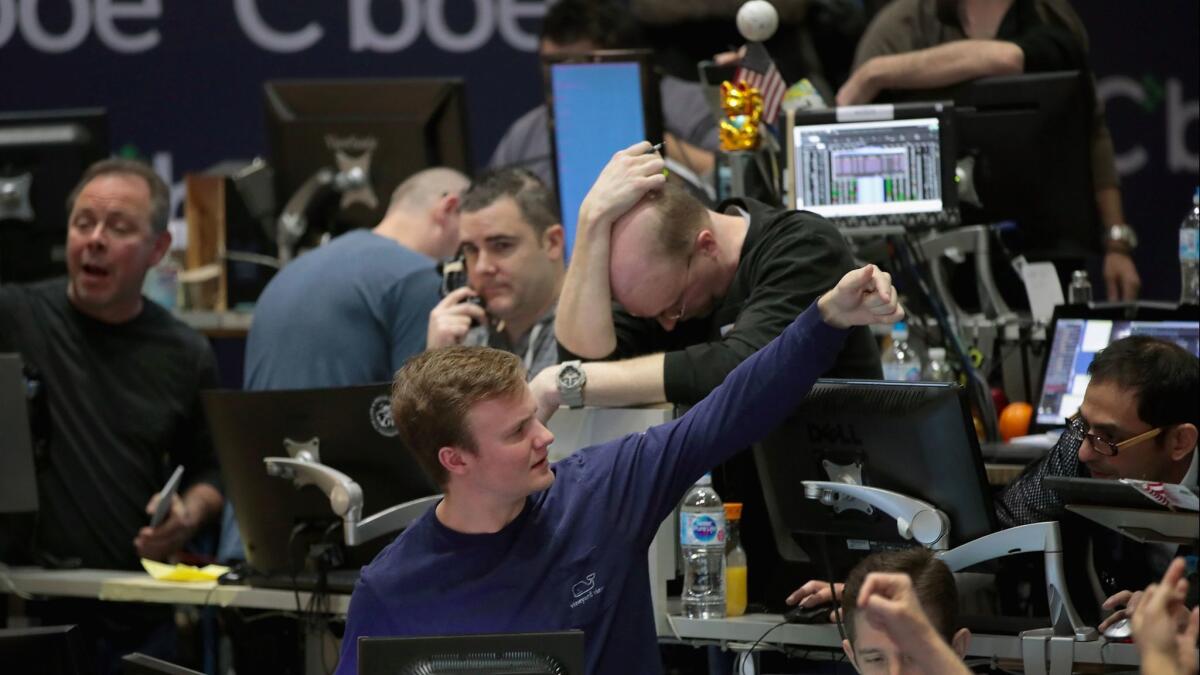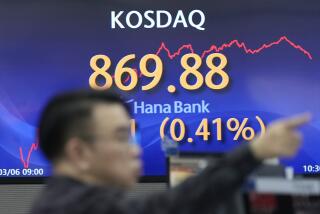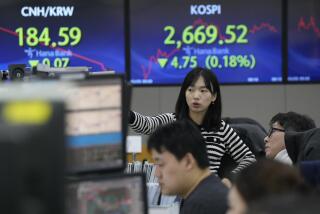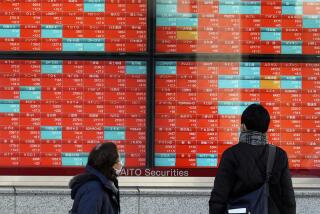In volatile times, tech stocks often bounce around more than others

In a week of stock market volatility, technology companies such as Apple, Alphabet and Facebook saw some of the sharpest declines over the last few days.
Economists aren’t particularly worried or surprised though.
That’s because in shaky times, technology stocks often take the first — and hardest — beating.
“Most of their value is based on what they will become in the future,” said Lawrence Harris, an expert in stocks who teaches at at USC’s Marshall School of Business. “And the future, of course, has not yet arrived.”
Stock market volatility is tied to investor confidence, Harris said. When investors are feeling bullish about a company or an industry, they buy stock, which drives up values. When investors feel pessimistic or skittish, they’re more likely to sell.
So when it comes to the technology industry, where valuations largely rest on what companies might be able to accomplish in the future, investor pessimism can lead to significant swings in stock price.
Facebook, for example, is a money-making machine. It made $40.6 billion in revenue during its 2017 fiscal year. Still, its market cap is $523 billion — more than 13 times its annual revenue. To warrant such a valuation, investors must believe that the company is capable of increasing its earnings by orders of magnitude in the coming years.
Or take Tesla, which is not yet profitable and has a market cap of $55 billion. Its competitor, Ford, recorded $2.4 billion in profit during its last fiscal quarter and has a market cap of $42 billion.
“So you basically have two companies of similar size — one makes lots of and lots of money, and the other doesn’t,” said Harris. “And people are betting that Tesla is going to win.”
It’s common for people to oscillate between optimism and pessimism for any number of reasons, Harris said, and when they do, tech firms are the worst hit “because their values depend on uncertainties.”
Harris and economist and USC instructor Pai-Ling Yin believe it’s what happens in the long run that matters, and the best thing to do is to ride it out. After all, even with recent wild fluctuations, Apple’s current share price remains 24% higher (at $162.48 a share) than it was this time last year. And Alphabet, despite experiencing its sharpest drop in stock price in the last 12 months this week, is still trading at 31% higher (at $1,077 a share) than its value a year ago.
Looking more generally at investor pessimism of the stock market, Harris said the volatility could serve as a warning of the consequences of a growing federal deficit.
Deficits can lead to “crowding out,” which is when the government competes with the private sector for a limited amount of funds to finance its deficit spending. This can then drive up interest rates, which can discourage investments, and lower investments can lead to lower economic growth.
“The president may not care about deficits, and some politicians in Congress may not care, either, but it’s clear businesspeople and investors care,” Harris said.
Twitter: @traceylien







